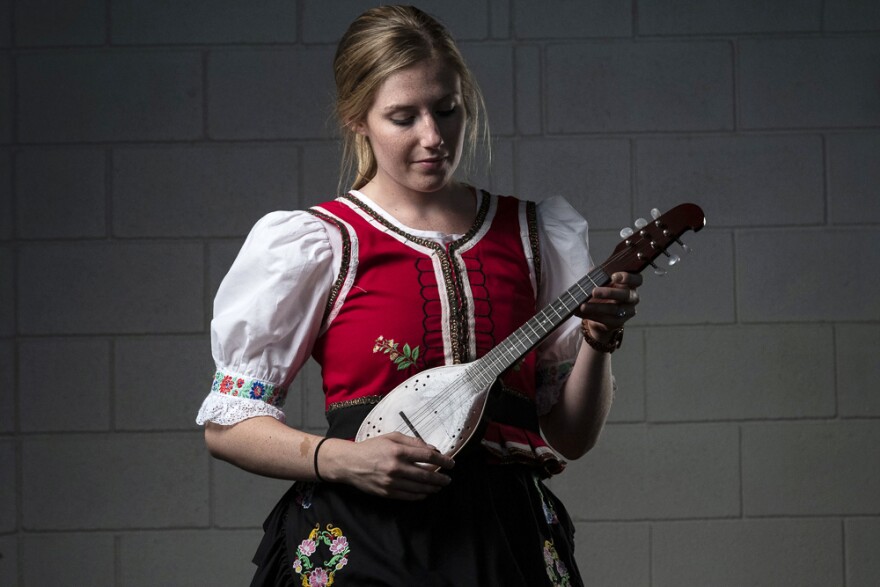Sugar Creek is a small community about nine miles east of downtown Kansas City. In 1904, Standard Oil opened an oil refinery there and immigrants from Eastern Europe were recruited to work at the plant.
Like many of the hardcore Slavophiles who grew up in Sugar Creek, Mark O’Renick’s great-grandfather came over from Slovakia in the early 1900s to work in the refinery. Of course, O’Renick’s name doesn’t sound especially Eastern European. He says an immigration officer at Ellis Island took it upon himself to add an “O” to his great-grandfather's papers to give their family name an Irish flair.
O’Renick says it’s important for people to take a moment to remember where they come from. For the past 35 years, the Sugar Creek Slavic Festival has been a way to do that: People from across the Kansas City area who can trace their family heritage to countries like Poland, Czechia, Slovakia, Russia, Serbia and Croatia gather to dance, eat traditional food and drink beer.
“Slavic heritage isn’t at the top of everyone’s mind,” says O’Renick. “It would be easy for it to get lost if we didn’t continue to do things.”
Each year, circle dances called the Kolo are a highlight of the festival's entertainment. In Southeastern Europe, the Kolo is performed by dancers interlinked to form a chain moving in a circular line — it’s a staple at weddings, cultural and religious ceremonies. All of the dancers wear a traditional folk costume known as a kroj, with brightly colored embroidered symbols telling the story of each region the dancer hails from.

Lora Salva and her brother-in-law Dan Salva spend hours patiently walking dancers through the steps. They practice for several weeks teaching the next generation of performers in the banquet hall of the Mike Onka Memorial Building.
Over the years, the Slavic communities in Sugar Creek intermingled with nearby Strawberry Hill. Dan Salva’s is father is ethnic Slovak. His mother’s family has roots in Croatia.
“My dad crashed a wedding reception over on Strawberry Hill,” Salva says with a laugh. “That’s how he met my mom.”
Lora Salva’s background is German. She says she “married in” to the Sugar Creek Slavic community 35 years ago, and learning folk dances was a way to join in the fun.
“We had a strong German community but we didn’t celebrate the culture the way this community celebrates,” Lora Salva says. “I just loved it because the weddings were such a festive occasion and you didn’t have to be Slovakian to learn how to do the kolos and everybody polka’d and danced and it was just a celebration of life.”

Beyond dancing there is a rich selection of beer and traditional dishes like sarma (cabbage rolls), kielbasa (polish sausage) as well as sweet baked goods like Croatian povitica and Czech kolache.
Dan Salva says there are advantages to embracing your roots.
“It’s really grounding to know where you’re from and to be able to draw the line back,” Salva says. “You can take a look at where your family lived and the ground they walked on, the houses they lived in.”

But you don’t need Slavic ancestry to enjoy the event. O’Renick says, for many, the festival is like a big reunion where everyone is welcome.
“It’s a heck of a fun loving group,” O’Renick says. “I’ve never met a Slav that isn’t pretty much fun loving. We love our families, we love our food. We love to have a beer and we all get along.”
The Sugar Creek Slavic Festival, 5-11 p.m. Friday, June 7, and 3-11 p.m. Saturday, June 8, at the Mike Onka Memorial Building Grounds, 11520 East Putnam, Sugar Creek, Missouri 64054. Adults $4, children under 12 are free.
Julie Denesha is a freelance photographer and reporter for KCUR. Follow her on Twitter, @juliedenesha.




